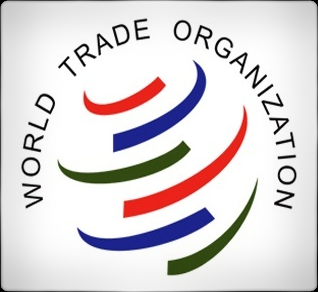Here's a rich one: India is initiating a dispute with the United States in the World Trade Organization (WTO) alleging that the raising of fees for participation in certain guestworker programs constitutes "discrimination" and puts those foreign temporary workers on a lesser footing than similarly situated American workers.
The basis of the impending action is this: In December, as part of the omnibus spending bill, Congress doubled the fees paid by employers to sponsor guestworkers in the controversial H-1B and L categories, used to bring in more than 200,000 new guest workers each year. The Indians dispute this as inherently discriminatory.

Can you imagine? How shocking that American workers should be given preference over intended guestworkers who aren't even here yet, and that the guestworkers and middle-man shell companies that supply these workers to American corporations must face rising immigration and visa-issuance related fees.
Mockery aside, if anyone thinks that unbridled guestworker programs are a good idea, consider the entire concept that a foreign nation can complain to a supranational body that another sovereign nation favors its own citizens and lawful residents in the job market. This can only happen when access to such programs has become so routine and broad-based for the nationals of the foreign state — and they have been during this administration — that they come to think it a matter of right.
The sector of work involved in this dispute is the information technology industry, which has become the subject of much recent debate in this country, given the demands of tech giants for plentiful and ready access to cheap foreign labor, alleging as they do that there aren't enough U.S. workers to do the jobs. This despite evidence at Disney and elsewhere that Americans are routinely fired and forced to train their foreign replacements, even though there are twice as many American technology degree holders as jobs available. And that doesn't even take into consideration the significant number of companies that have "off-shored" technology work, such as help desks and call centers, to places such as the Philippines and India, taking thousands of previously American jobs with them.
Ironically, dropouts from the job market lead to a false sense of security in the stability of the economy, because they make the unemployment figures look substantially lower than reality. This is because when they quit looking, they're no longer counted as "unemployed". And, sadly, this in turn continues to drive the bogus narrative cycle that "free trade" (often commingled with or misinterpreted as "cheap labor") is a vast boon to Americans.
This WTO action by India leads us to another troubling arena: that of trade partnerships and agreements generally. One is reminded of the recent unabashed steamrolling of Congress by the Obama White House to obtain its concurrence for the Trans Pacific [Trade] Partnership (TPP), replete with secret and shady side agreements that appear to even further weaken the capacity of American workers to obtain decent, gainful employment in their own country.
Proponents of TPP (who also happen to be some of the most ardent proponents of increasing the number of guestworkers) constantly deny that trade agreements undermine congressional control of immigration and visa programs. Yet this new effort by India to force the repeal of modest new rules enacted by Congress clearly demonstrates just how false those claims were.
In the WTO case, if the body of international trade arbiters rules in favor of India, then we will have to change our laws to conform to international expectations, or face sanctions, and this unaccountable international tribunal effectively will have control over our immigration laws.
One wonders what rights the Democratic administration and Republican Congress, which knuckled under shamelessly in the matter of the TPP, have given foreign countries to contest our laws and regulations in obscure international organizations whose interests will not, can never, match up with those of our unemployed and underemployed workers, many of whom, facing seemingly insurmountable odds at getting decent employment, have dropped out of the job market completely.
The next step in the dispute is that the United States has 10 days to respond, and if the United States and India cannot come to an agreement, then it goes to the WTO dispute resolution tribunal. The question is, how hard will the Obama administration try to defend the rules imposed by Congress? Its track record is not at all encouraging, and it's unlikely that the next Democratic administration will be any different; certainly not if former Secretary of State Hillary Clinton were to be elected.
